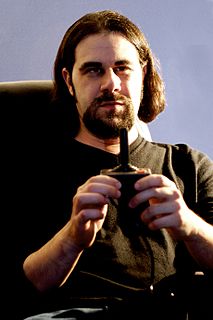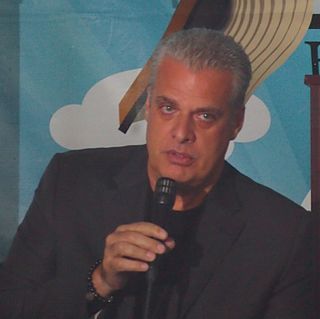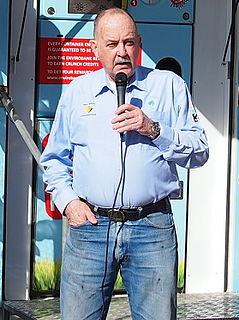A Quote by Eric Kripke
Beyond all our Blackberries and iPhones, we're dangerously separated from our food and water supplies.
Quote Topics
Related Quotes
Today, all our wives and husbands have Blackberries or iPhones or Android devices or whatever-the progeny of those original 950 and 957 models that put data in our pockets. Now we all check their email (or Twitter, or Facebook, or Instagram, or) compulsively at the dinner table, or the traffic light. Now we all stow our devices on the nightstand before bed, and check them first thing in the morning. We all do. It's not abnormal, and it's not just for business. It's just what people do. Like smoking in 1965, it's just life.
We're facing growing climate change, more floods, more droughts, more crisis on a planetary level, and the systems we put in place in the twentieth century are just not going to work. We've run out of stuff. Our big problems are going to be energy supplies and food supplies. This is not a right-left issue. It's a people issue, and it cuts across all our categories.
Some global hazards are insidious. They stem from pressure on energy supplies, food, water and other natural resources. And they will be aggravated as the population rises to a projected nine billion by mid-century, and by the effects of climate change. An 'ecological shock' could irreversibly degrade our environment.
The mountain glaciers in every region of the world are melting, many of them at an accelerated rate, threatening drinking supplies - drinking water supplies and agricultural water supplies. We have these record storms, drought, floods, fires, three deaths (ph) in the American West, climate refugees beginning now, expected to rise to the hundreds of millions unless we take action.
Cooking is a holistic process of planning, preparing, dining and sharing food. I place food at the center of our humanity, as it nourishes not only our physical bodies but also our emotional and spiritual lives. Food is truly a cultural phenomenon that informs our traditions and our relationship with the earth. I genuinely believe that food connects us all.





































